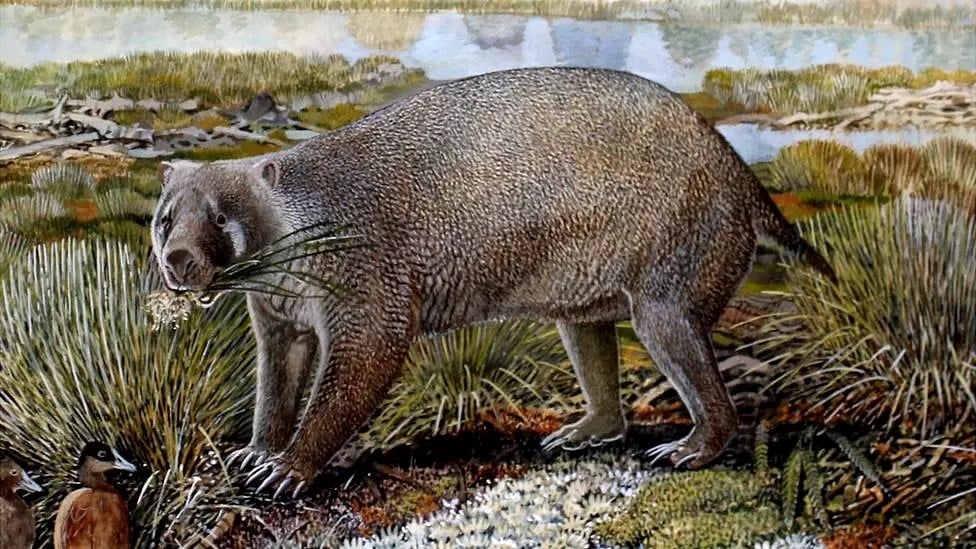Fossils of 25-million-year-old Australian wombat pieced together
A team of scientists was able to recreate the ancient animals in the lab thanks to fossils that were found in many digs over the past ten years.
-

The Mukupirna nambensis - a close relative of the fortidentata - was only discovered in 2020. (PETER SCHOUTEN)
Fossils discovered by Australian scientists reveal that a hefty, powerful-biting predecessor of the wombat roamed Australia's formerly lush Outback some 25 million years ago, feasting on fruit and nuts.
A team of scientists from Flinders University pieced together fossils unmasked in Australia's remote Northern Territory to reveal the long-extinct marsupial named Mukupirna fortidentata.
The paleontologists also discovered Chunia pledgei, a prehistoric possum with "bizarre nut-cracker teeth."
"These curious beasts are members of marsupial lineages that went extinct long ago, leaving no modern descendants," said Arthur Crichton, from Flinders University's Palaeontology Laboratory.
"Learning about these animals helps put the wombat and possum groups that survive today in a broader evolutionary context," he added, as quoted by AFP.
The team was able to recreate the ancient animals in the lab thanks to fossils that were found in many digs over the past ten years.
One of the largest marsupials alive at the time, the wombat-like animal had a powerful bite, probably ate hard fruits and nuts and weighed up to 50 kilograms (110 pounds).
The creature is related to Mukupirna nambensis -- discovered in 2020 -- a giant relative that would dwarf most of today's wombats.
According to Professor Gavin Prideaux, head of the university's paleontology department, it is unclear what caused the beast to go extinct, but it did so as ancient forest regions in central Australia grew drier.
"While wombats were very successful over the succeeding period, the mukupirnids seem to have gone extinct sometime before the end of the late Oligocene (25-23 million years ago)," Prideaux said.
Less was known about the early possum of the Ektopondontidae family because it was a "tantalisingly rare" find, but it sported a lemur-like face with "very strange teeth," Crichton said.

 2 Min Read
2 Min Read








